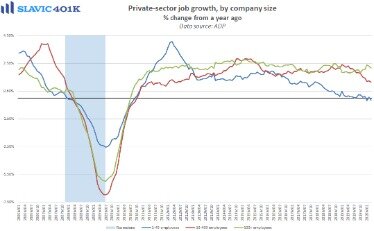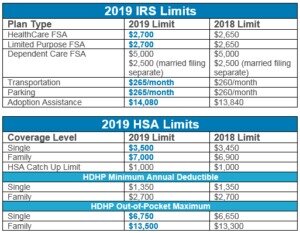Zero-based budgeting is best suited for addressing discretionary costs rather than essential operating costs. However, it can be an extremely time-consuming approach, so many companies only use this approach occasionally. As one of the most commonly used budgeting methods, zero-based budgeting starts with the assumption that all department budgets are zero and must be rebuilt from scratch. Zero-based budgeting is very tight, aiming to avoid any and all expenditures that are not considered absolutely essential to the company’s successful (profitable) operation. This kind of bottom-up budgeting can be a highly effective way to “shake things up”.

A cash-flow budget helps managers determine the amount of cash being generated by a company during a specific period. The inflows and outflows of cash for a company are important because expenses need to be paid on time from the cash generated. For example, monitoring the collection of accounts receivables, which is money owed by customers, can help companies forecast the cash due in a particular period. Of course, determining how much to spend on various expenses and projecting sales is only one part of the process. Company executives also have to contend with a myriad of other factors, including projecting capital expenditures, which are large purchases of fixed assets such as machinery or a new factory. They must also plan for their ongoing cash needs, revenue shortfalls, and the economic backdrop.
Difference between Cost Accounting and Financial Accounting
It is your budget, after all just make sure you keep your long-term financial goals in the picture. With a proper emergency fund, you will not need your credit card to keep you afloat when something goes wrong. In general, traditional budgeting starts with tracking expenses, eliminating debt, and once the budget is balanced, building an emergency fund. But to speed up the process, you could start by building a partial emergency fund. This emergency fund acts as a buffer as the rest of the budget is put in place and should replace the use of credit cards for emergency situations.
LegalZoom Launches ‘LZ Books’ for Small Business Owners … – The Bakersfield Californian
LegalZoom Launches ‘LZ Books’ for Small Business Owners ….
Posted: Thu, 03 Aug 2023 13:02:00 GMT [source]
Don’t be afraid to request bill extensions or payment plans from creditors. Skipping or delaying payments only worsens your debt—and besides, late fees ding your credit score. The point of the budget is to keep you out of overwhelming debt and help you build a financial future that will give you more freedom, not less. So think about how you want your future to be and remember that keeping to your budget will help you get there.
How a Cash Budget Works
Budgeting is a strategic planning process that businesses use to plan how they will spend their money in the future. To make a budget, businesses look at how much money they made (revenue) and spent (expenses) in the past and use that information to predict how much money they will make and spend in the future. Yet, it’s important to include the necessary expenses that are needed to ensure the business stays on track in the future. Base budgets tend to focus on ongoing operating costs instead of focusing on short-term projects.
The general idea is to look back and see how you have spent your money in the past. Managing a cash budget also comes down to carefully managing the growth of the business. For example, all businesses want to sell more and grow, but it is crucial to do so in a sustainable way. Add budgetary accounting to one of your lists below, or create a new one. Finance designates a fund administrator for each fund and the organization is responsible for preparing the fund condition in the Governor’s Budget. Since Finance prepares the fund condition (Summary Schedule 1) for the General Fund, Finance reconciles with the SCO General Fund data to ensure that the past year balance is as accurate as possible.
Departments are required to follow that same process for other funds if they are designated as the fund administrator for the fund. The Government Code, beginning with section 12400, sets forth the duties and requirements of the SCO. Included in these duties is the maintenance of appropriation accounting, reporting of expenditures and revenues, and the Budgetary/Legal Basis Annual Report to the Governor. Accounting focuses on the recording, classifying, and interpreting of financial transactions. These accounting processes are dependent on the budgeting of expenditure authorizations (appropriations) being enacted by the legislative branch. Any and all of these budgets are part of a company’s overall financial plan.
Construction of a Budget
Budgeting creates a baseline to compare actual results to determine how the results vary from the expected performance. Although budgeting and financial forecasting are often used together, distinct differences exist between the two concepts. Budgeting quantifies the expected revenues that a business wants to achieve for a future period. In contrast, financial forecasting estimates the amount of revenue or income achieved in a future period. A budget is an estimation of future revenues and expenses for a certain period.

But no matter the type of financial statement, having accurate information is key. Cash flow budgets help to examine past practices to examine what’s working and what’s not and make adjustments. For example, a company could apply for a short-term working capital line of credit from a bank to ensure they cash in the event a client pays late. Also, companies can ask for more flexible options for their accounts payables, which is money owed to suppliers to help with any short-term cash-flow needs.
Find New Sources of Income
Prepared by the organisation, they will break down different revenues and expenses. These budgets can be common for businesses with cash profits and tend to lean towards cutting every possible expense. So, if you are wondering about what is cost accounting and how to calculate it, then this blog is just for you. Let’s discuss the cost accounting points that will help you in the budgeting of your business and you can enjoy seamless and efficient financial management ultimately. The company then subtracts the cash needed to pay for production and other expenses.
This is a result of workers feeling they have few resources available to them at work. A supplemental budget is a budget for an area that is not included in the main budget. Budgeting provides a means of informing managers of how well they are performing in meeting targets they have set. Take your learning and productivity to the next level with our Premium Templates. A government usually has a deficit during economic recessions, as it intends to boost the economy by pumping money into the market.
You’ve accomplished all of the above, even putting together a nice spreadsheet that lays out your budget for the next 15 years. The only problem is that sticking to that budget isn’t as easy as you thought. That credit card still calls your name, your clothes category seems awfully small and you feel deprived.
Zero-Based Budgeting
Executives may outline some of the targets they would like to hit, but at the same time, there is shared responsibility for budget preparation between managers and employees. For instance, if management were planning to purchase a new piece of equipment next year, that expense would show up in the budget. It’s just a written plan that details the financial goals of the company for a future period.
Capital budgeting involves future projects which overlap several or many future accounting periods. Capital budgeting usually means listing each project along with its cash outlays and expected cash inflows for each year. The amounts should be discounted to their present values and also ranked by priority and profitability. In most departments, appropriations for the current year are typically shown fully expended in the Governor’s Budget. However, if accounting or budget estimates records indicate savings will be realized or that deficiency funding will be needed, expenditures may need to be adjusted, as appropriate, for the budget.
Capital Expenditure Budget
It is prepared in compliance with state laws and accounting procedures and is in conformance with the Budget Act and other financial legislation. It is compiled from the SCO accounts, which are on a cash basis, and are updated at year-end with financial statements received from state departments. Departments’ year-end financial statements contain assets, liabilities, and accruals not in the SCO accounts.
And it doesn’t matter if you do your business taxes yourself or hire a professional. For instance, you could spend money on tax software or hire someone to file your taxes on a regular basis. Their process will be accelerated by your budget, potentially saving you money and time. In business as in personal life, it’s critical to prepare for the unexpected. You can avoid having to take money away from other aspects of running your business by creating an emergency fund with the aid of a budget. Without a budget in place, a company might not be aware of how operations are going.
- A flexible budget can help companies account for both variable and fixed expenses, creating a more dynamic process and leading to more accurate forecasts.
- It can be made for an individual, project, business, government, or other organizations.
- A budget acts as a financial roadmap outlining a company’s expected revenue, expenses, and cash flow for a specific period.
- Because they are based on aggregate data they may not always be accurate.
If, however, the flexible budget variance was unfavorable, it would be the result of prices or costs. By knowing where the company is falling short or exceeding the mark, managers can evaluate the company’s performance more efficiently and use the findings to make any necessary changes. The operating budget also represents the overhead and administrative costs directly tied to producing the goods and services. However, the operating budget doesn’t include items such as capital expenditures and long-term debt. The operating budget includes the expenses and revenue generated from the day-to-day business operations of the company.
All budgets get rolled up into the master budget, which also includes budgeted financial statements, forecasts of cash inflows and outflows, and an overall financing plan. At a corporation, the top management reviews the budget and submits it for approval to the board of directors. Budgets help management decide which activities it will undertake and how the budgeting principles of managerial accounting company’s resources will be used. If the budgeted income statement and balance sheet coming out of the master budget are not acceptable, management can make the needed changes before the year actually begins. A simple budget example is organising personal expenses and income. You can include things like rent costs, vehicle insurance, and outstanding debts.

